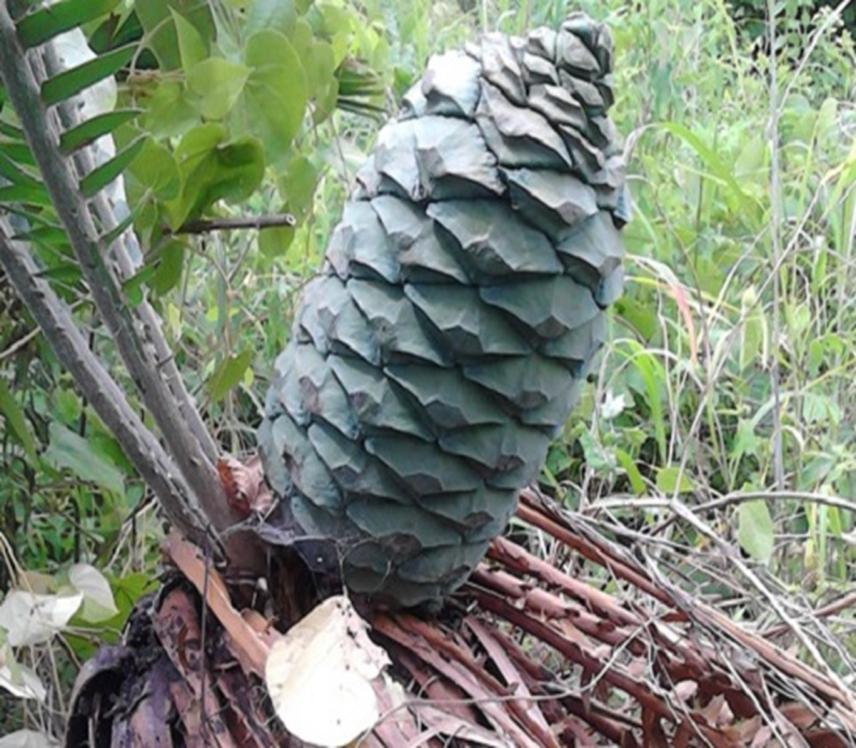Samuel Ojelel
Other projects
26 Apr 2018
Consolidating Community Efforts to Protect an Endangered cycad (Encephalartos macrostrobilus) in Lamwo District, Uganda
This project aims at Encephalartos macrostrobilus population survey, raising community awareness, conducting training on seedling multiplication and planting 1,200 seedlings.

Encephalartos macrostrobilus, female cone.
This project shall be launched through a stakeholders meeting. The district natural resource department shall assist in identifying and inviting the stakeholders. The project team shall design and display a 1x3m project banner bearing the project brief and the Rufford Logo and also facilitate the meeting.
After the launch, E. macrostrobilus population survey shall be undertaken. Sampling on both farm and non-farm lands in Madi Opei shall be carried out. This shall be conducted together with the help of two community members co-opted as field assistants. In addition, anthropogenic activities in the habitat and traditional ecological knowledge shall also be documented through site observations, a semi-structured interview and focus group discussions with residents.
Community sensitization and awareness shall be undertaken using the results of the survey and other relevant literature. In order to accomplish this; 5 village meetings, production and distribution of 200 information leaflets and 80 posters, two radio talk shows on Mighty Fire 91.5 FM and forming two environment clubs in two schools in Madi Opei shall be done. These school clubs shall be earmarked for linkage to Tree Talk Foundation that offers nursery bed equipment, training and tree seeds to schools for free.
This project shall also conduct 3-day non-residential training of 10 youth and 10 women within Madi Opei on E. macrostrobilus seedling multiplication. These participants shall be identified with the guidance of the local community leadership. This training shall combine both theoretical and hands-on approach including among others seed selection, storage, germination, nursery bed establishment & management, transplanting. External expertise in agronomy within the sub county/district shall be sourced to complement the project team in facilitating this training. After the training, the 20 trained participants shall manage the nursery bed on rotational (using a daily roster) basis and 0.25 pounds motivational allowance awarded for each seedling raised up to the stage of transplanting. The seedlings shall then be distributed to community members with the 20 youth and women accorded first priority since they have demonstrated interest and commitment in the project.
Throughout the project cycle, the project team shall send project briefs and results to prospective partners such as Tree Talk Foundation, Environment oriented Civil Society Organizations, Cycad society et cetera with a view of interesting them into forming linkages and partnerships to consolidate the gains of this project.